Chew on this problem for a moment. How do you go about highlighting the special virtues of a vehicle that brings a new level of fuel efficiency and climate-friendliness to the super-luxury SUV class (a sector not known for such priorities) when its creators’ main aim is to make it drive exactly like its conventional brethren?
This is the difficulty we faced with the Bentley Bentley Bentayga Hybrid. Despite being packed from stem to stern with new equipment – a relatively small (3.0-litre) V6 petrol engine, a 126bhp electric motor sandwiched between engine and gearbox, a lithium ion battery under the boot floor with 13.3kWh of usable power and 25 miles of EV range, plus lots of mysterious black-box gadgetry connected under the skin by thick, brightly coloured high-voltage cables – this electrified edition of the world’s most successful super-luxury SUV had been configured to feel just like all the rest.
The official fuel economy and CO2 figures were no help, either, serving only to advertise the inadequacy of lab figures. A conventional Bentley Bentayga V8 returns 21.7mpg on the combined test cycle and pumps out 294g/km of CO2. Corresponding figures for the Hybrid are 81mpg and 79g/km, stats so hopelessly unlike real life that Bentley doesn’t even bother to quote them in its otherwise comprehensive technical presentation on the Hybrid. I mean, nobody’s really going to get 81mpg out of a Bentley hybrid, are they?
The one and only worthwhile comparator is that the electrified Bentayga concedes 0.8sec on 0-62mph acceleration to its V8 sibling, hardly a disaster when the PHEV’s test-track journey takes only 5.2sec. But what about the other stuff? If not 81mpg, what fuel mileage can Bentley hybrid owners expect in real life? How far will their fuel tank truly take them? Critically, will the hybrid deliver the same magic carpet progress as conventional models after you’ve spent hours behind the wheel? There was only one way to find out: take the Bentayga PHEV to the road on a very long day’s drive, including (safe levels of) journey fatigue in the equation to punctuate the mere statistics.

Where to go? A logical first step was to drive the 129 miles from my Cotswolds base to Bentley’s HQ in Crewe to take a technical refresher course. That way I’d be able to ask questions that had arisen in the first three hours of driving. Over the phone, Bentley’s technical comms chief, Jon Smedley, signified that he was ready and willing, and would bring a clever colleague. Crewe would also be a good place to link up with our photographer, Max Edleston, who has family connections in the area.
As we searched for a second destination, the idea of a trip to the welcoming but thoroughly extraordinary emporium of P&A Wood, near Dunmow in Essex, popped obligingly into my head. Started in 1967 by brothers Paul and Andy Wood on the proceeds of an Austin Seven they had been given, this company is the embodiment of its founders’ love of Bentley and Rolls-Royce cars, especially the old ones. They’ll sell you a new Rolls too, but the soul of the business will always be ‘heritage’ models.


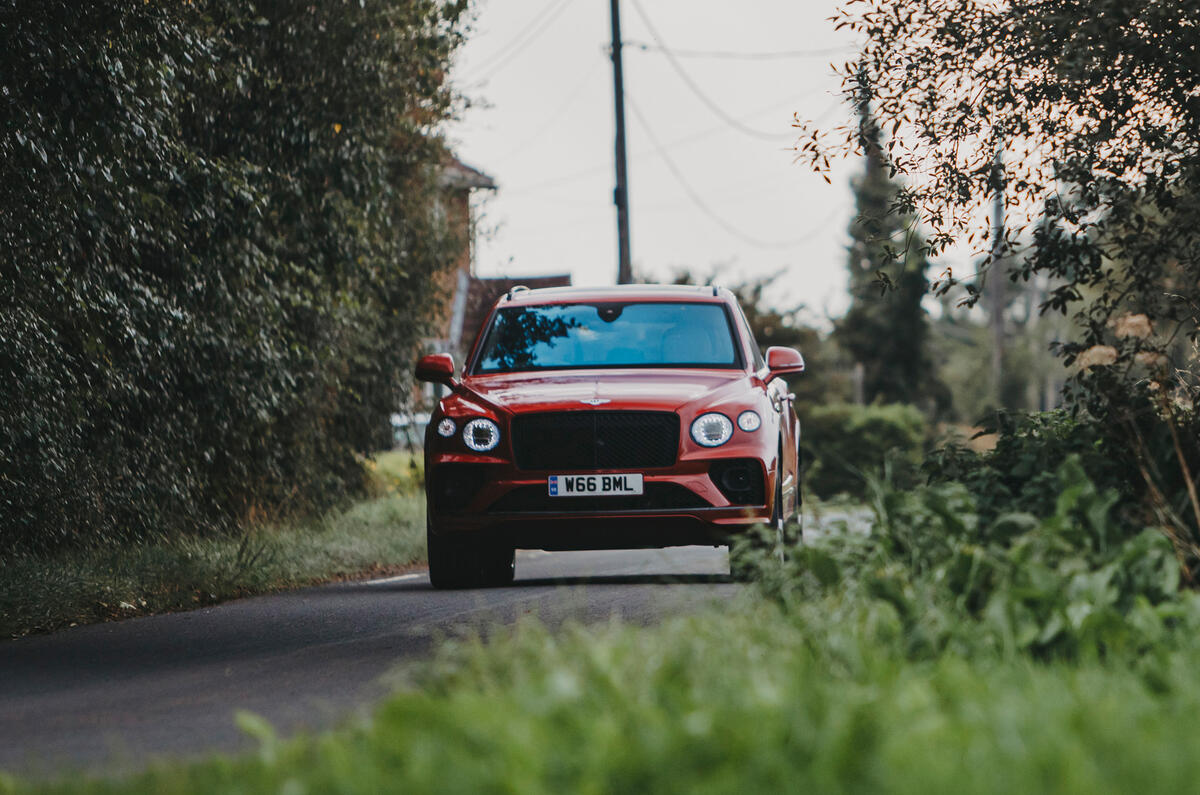






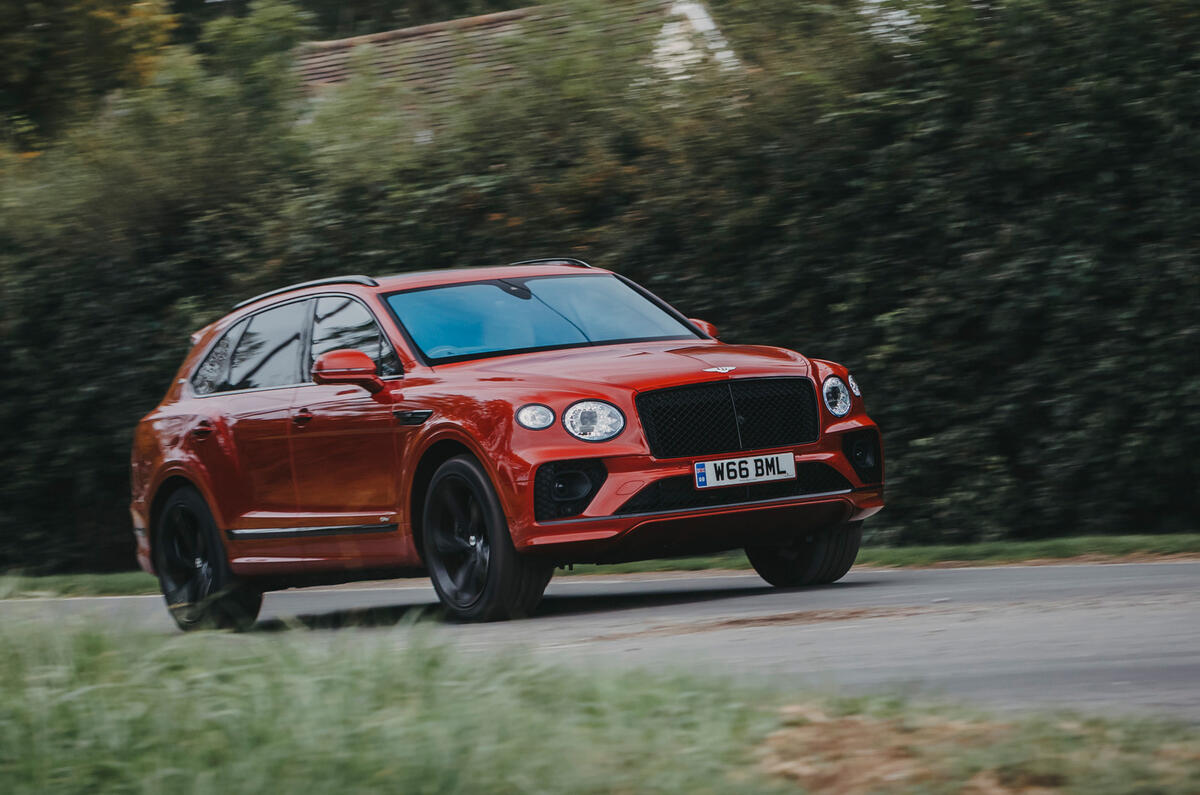

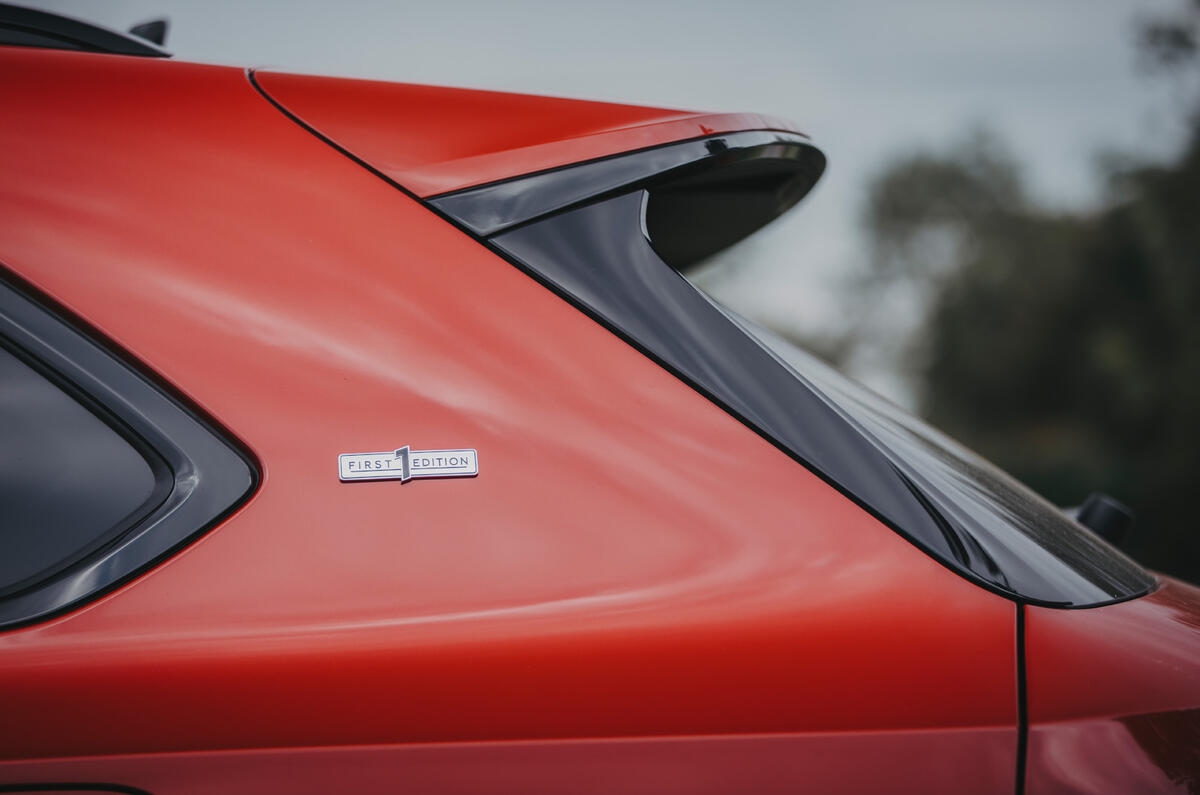
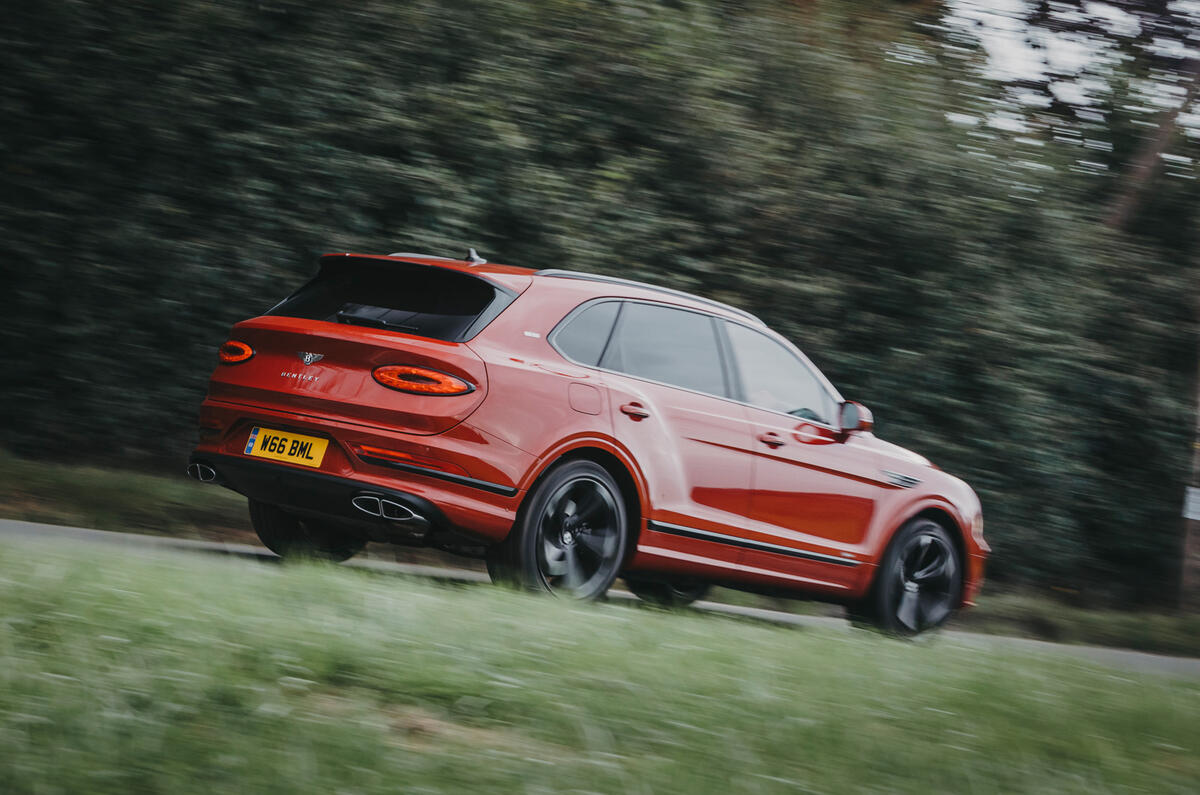
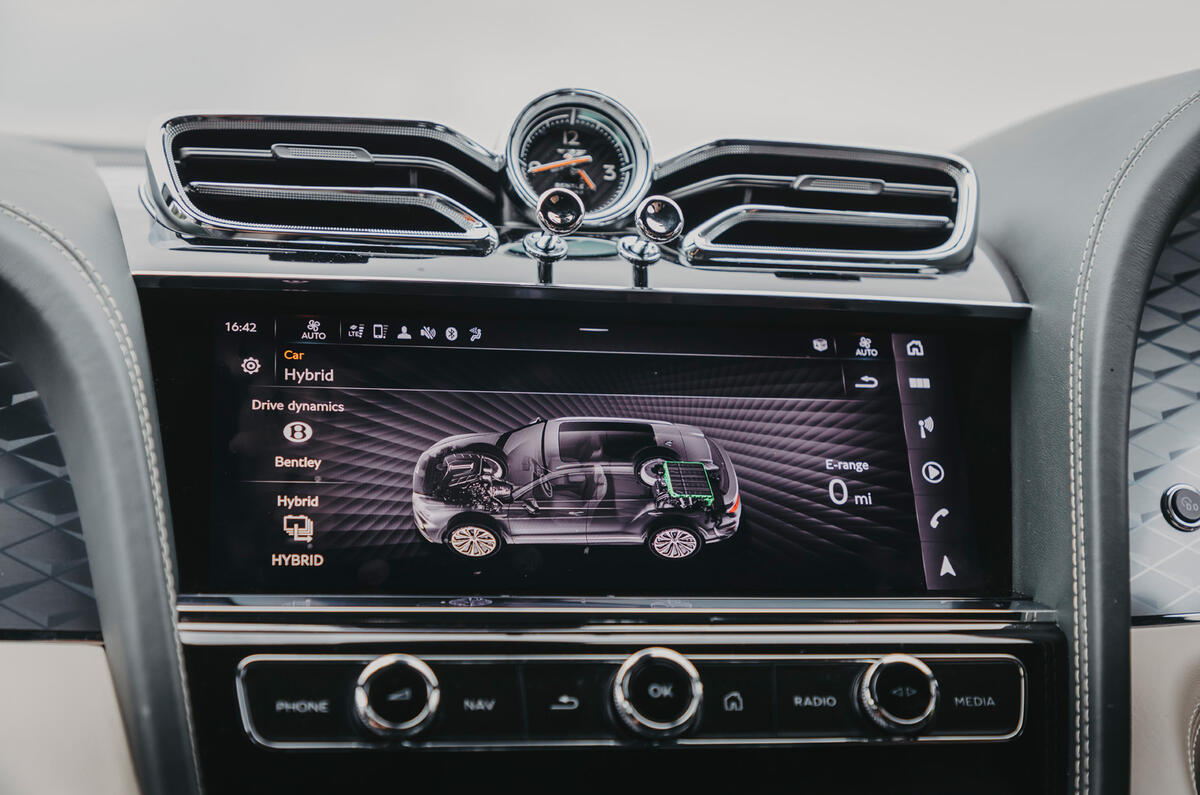






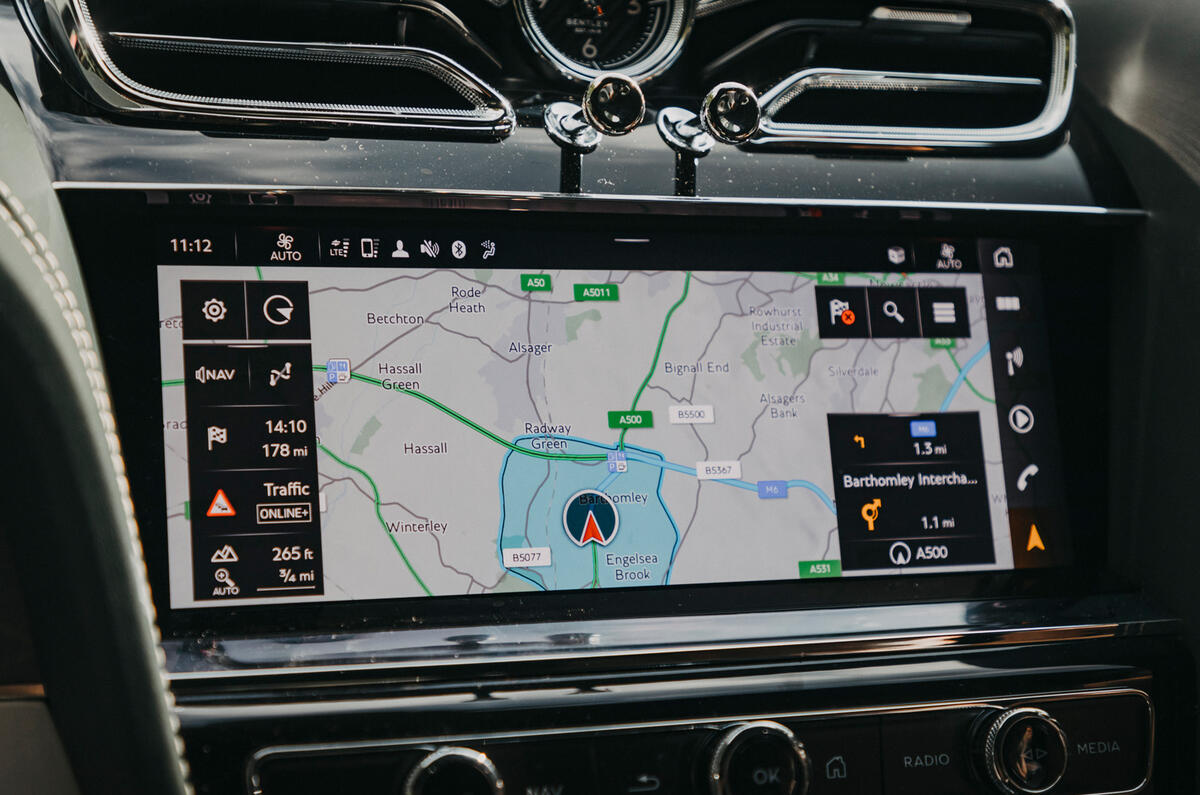































Join the debate
Add your comment
What an awful car. Utterly pointless. Hybrids should be sent packing. Whatever you do, do not plug it into a public charger and deny someone that really needs it. A Bentley owner doesn't give a stuff about mpg. Plug in hybrids are an utter farce to fiddle the CO2 numbers. There should be rules to ensure they are actually run on electric in line with the CO2 numbers, monitored and sent through the onboard SIM card. If it's not then the owner is taxed for the missing proportion of time it runs on petrol.
I mean, the owner is taxed for running it on petrol, due to the fact they are buying more petrol, but I take your point about the wastefulness.
Re: chargers, yes this is an issue. There is one fast charger in our immediate neighbourhood of five streets and it is often occupied by a hybrid. EVs are then forced to use the lamp post trickle chargers.
What a remarkable motor car. I used to consider the Bentyga a vulgar and extravagant waste of money, but I shall be sure to doff my cap to every one I see from now on. Rule Britannia!
I guess it's a step in the right direction, but I fear that the sort of person who chooses to drive one of these might be even more ghastly than those who just go for the V12. At least they're honest about the fact they don't give a flying f*** about the rest of humanity.